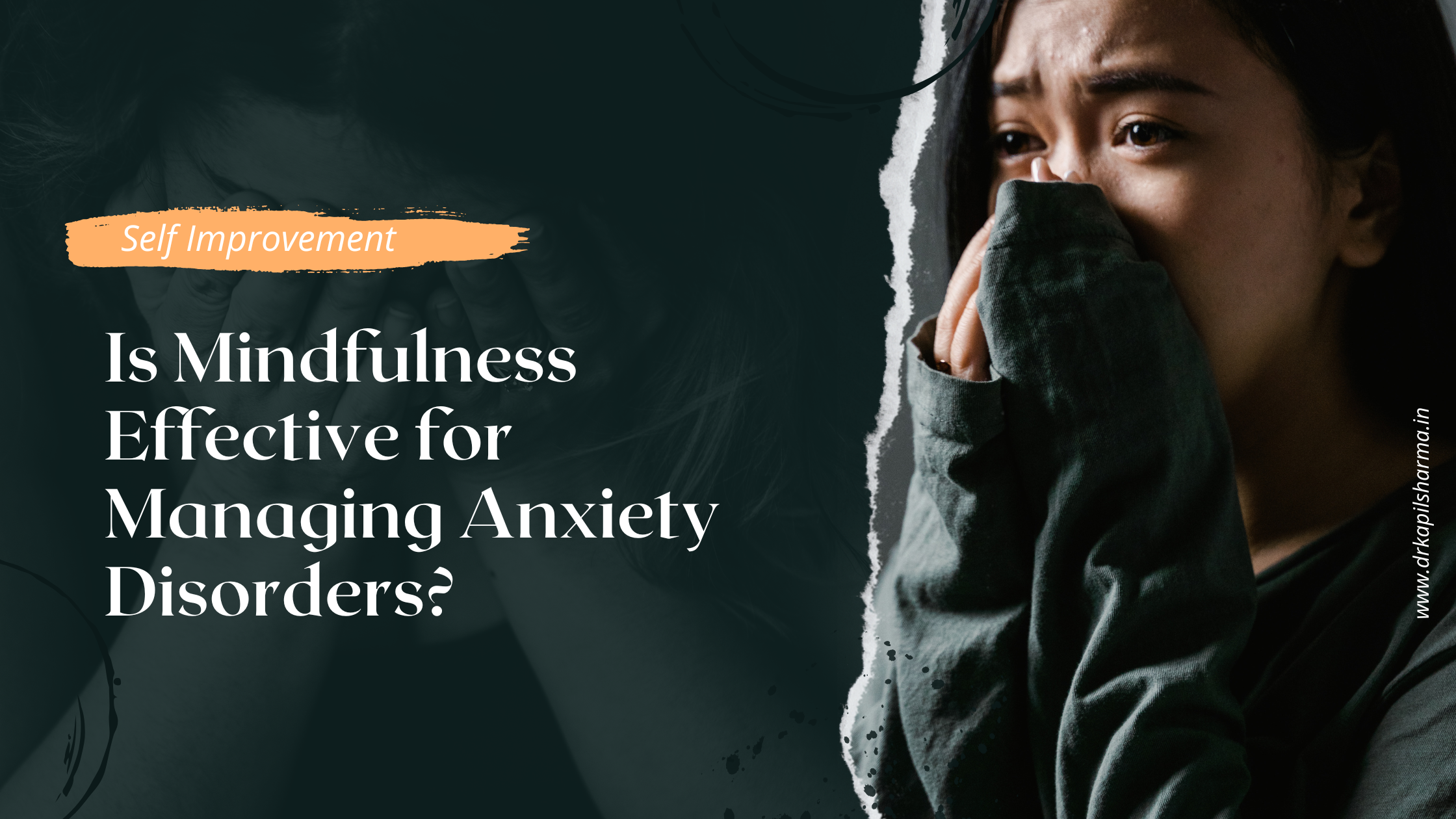
Is Mindfulness Effective for Managing Anxiety Disorders?
Anxiety disorders affect millions of people worldwide, impacting their mental well-being and overall quality of life. While traditional therapeutic approaches have proven effective, alternative methods such as mindfulness have gained significant attention in recent years. Mindfulness, rooted in ancient meditation practices, has shown promising results in reducing anxiety and promoting mental well-being. In this article, we will delve into the effectiveness of mindfulness for managing anxiety disorders and its potential benefits for individuals seeking relief from anxiety.
Understanding Mindfulness: Mindfulness involves focusing one’s attention on the present moment, cultivating a non-judgmental awareness of thoughts, emotions, and sensations. It encourages individuals to observe their experiences without getting entangled in them. By practicing mindfulness, individuals learn to acknowledge and accept their anxiety-related thoughts and feelings, fostering a compassionate and non-reactive stance towards their anxiety.
The Benefits of Mindfulness for Anxiety Disorders:
Reducing Stress and Worry: Mindfulness-based interventions have demonstrated their effectiveness in reducing stress and worry, which are common symptoms of anxiety disorders. By bringing attention to the present moment, individuals can distance themselves from future-oriented thoughts that often trigger anxiety.
Enhanced Emotional Regulation: Mindfulness practice enables individuals to develop better emotional regulation skills. By observing their emotions without judgment, individuals can respond to anxious thoughts and feelings with greater clarity and objectivity. This increased self-awareness can help prevent anxiety from spiraling out of control.
Cultivating Resilience: Mindfulness empowers individuals to develop resilience in the face of anxiety. By cultivating a non-judgmental attitude and acceptance towards their anxiety, individuals can develop a more compassionate relationship with themselves. This self-compassion can mitigate the negative impact of anxiety and promote emotional well-being.
Improving Cognitive Flexibility: Anxiety disorders often involve rigid and repetitive thinking patterns. Mindfulness practice encourages individuals to adopt a more flexible mindset, allowing them to challenge and reframe anxious thoughts. This enhanced cognitive flexibility can break the cycle of anxiety and open up new perspectives.
Stress Reduction and Relaxation: Engaging in mindfulness exercises, such as deep breathing and body scan meditation, promotes relaxation and reduces physiological symptoms of anxiety. By activating the body’s relaxation response, individuals can experience a sense of calm and tranquility, counteracting the physical symptoms of anxiety.
The Importance of Proper Guidance and Practice: While mindfulness can be beneficial for managing anxiety disorders, it is crucial to seek proper guidance and practice regularly. Engaging in mindfulness-based interventions under the supervision of trained professionals, such as therapists or mindfulness instructors, can ensure the appropriate application of techniques tailored to individual needs.
Conclusion: The growing body of research on mindfulness suggests that it can be an effective tool for managing anxiety disorders. By promoting self-awareness, acceptance, and emotional regulation, mindfulness empowers individuals to develop resilience and cope with anxiety more effectively. Contact now to the best psychiatrist in Jaipur, Dr. Kapil Sharma. However, it is important to note that mindfulness is not a one-size-fits-all approach, and results may vary among individuals. Consulting with healthcare professionals and incorporating mindfulness as part of a comprehensive treatment plan can optimize its effectiveness in managing anxiety disorders. With dedication and practice, mindfulness has the potential to contribute significantly to anxiety management and improve overall well-being.

